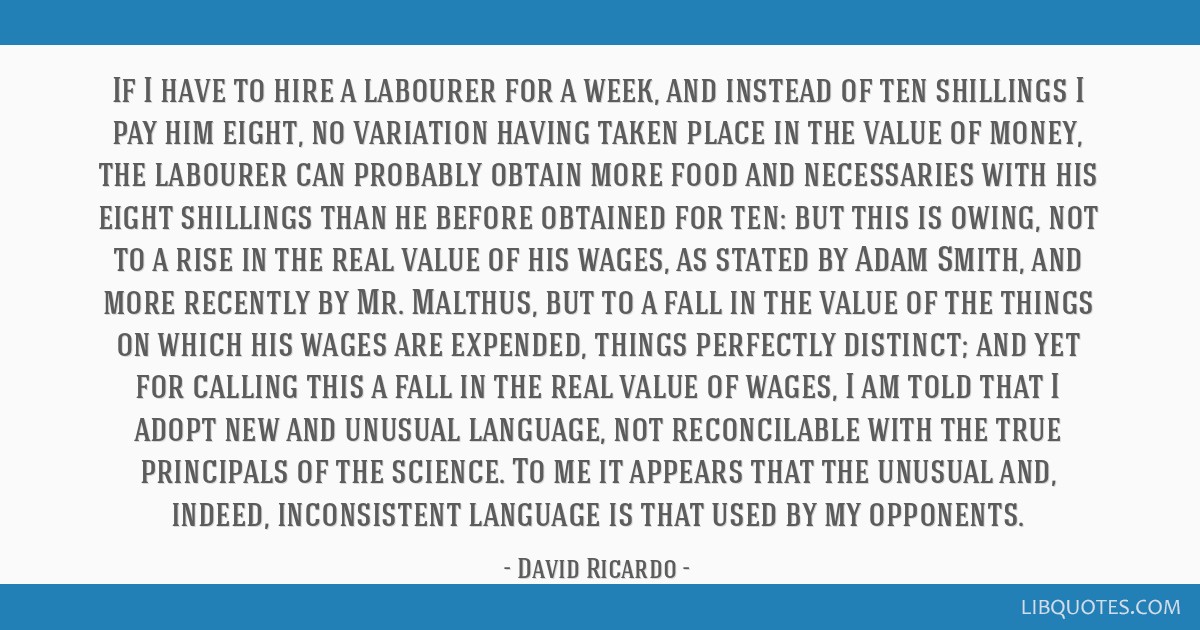If I have to hire a labourer for a week, and instead of ten shillings I pay him eight, no variation having taken place in the value of money, the labourer can probably obtain more food and necessaries with his eight shillings than he before obtained for ten: but this is owing, not to a rise in the real value of his wages, as stated by Adam Smith, and more recently by Mr. Malthus, but to a fall in the value of the things on which his wages are expended, things perfectly distinct; and yet for calling this a fall in the real value of wages, I am told that I adopt new and unusual language, not reconcilable with the true principals of the science. To me it appears that the unusual and, indeed, inconsistent language is that used by my opponents.
Chapter I, Section I, On Value, p. 11 - The Principles of Political Economy and Taxation (1821) (Third Edition)





















